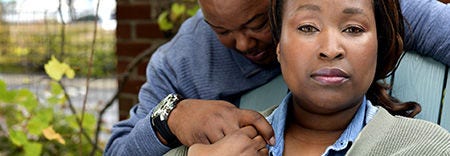Sun Safety and Vitamin D
Many people worry that protecting their skin from the sun might mean they won’t get enough vitamin D. Although vitamin D is important for your health, it’s also important to protect your skin from harmful UV rays.
What is vitamin D?
Vitamin D is actually a group of hormones. But the different types of vitamin D don’t act like other types of hormones you might know about. The primary function of vitamin D is to keep bones and teeth strong by helping the body absorb and use calcium and phosphorus in the right way.
Vitamin D has many other health benefits. Vitamin D helps control inflammation (swelling) and the growth of cells, keeps muscles strong, and helps the immune and lymph systems and nervous system work like they should. Studies also suggest having low vitamin D levels could be linked to seasonal affective disorder and mood changes.
Where does vitamin D come from?
Most people get at least some of their vitamin D through UV rays in natural sunlight. Your skin makes vitamin D naturally when it is exposed to UV rays. The outer layer of the skin (the epidermis) is responsible for starting the process of making vitamin D in response to sun exposure.
How much vitamin D your skin can produce depends on:
- How old you are
- How dark your skin is
- How strong the sunlight is where you live
- If you wear clothing with UPF or sunscreen with SPF
- Other health problems you might have
There are 2 major types of vitamin D:
- Vitamin D2 is mostly lab-made and added to foods and supplements.
- Vitamin D3 is naturally made in the skin and can also come from eating certain foods and taking supplements.
Not many foods naturally have vitamin D. This is why it’s often added to foods and drinks, and why your doctor might prescribe or recommend vitamin D supplements for you.
Does vitamin D protect against cancer?
Research on a link between vitamin D and cancer is mixed. Some studies have shown a link between low vitamin D levels in the body and a higher risk of getting cancer or dying from cancer. However, it’s not clear if taking vitamin D or having certain vitamin D levels might help prevent cancer. It’s also not clear if vitamin D can help control the growth and spread of cancer. More research is needed to know what role vitamin D does or does not play in helping to prevent or control cancer.
Am I getting enough vitamin D while protecting my skin?
It’s important to remember the harmful effects of UV rays from sunlight and tanning devices. Although vitamin D is made naturally when the skin is exposed to UV rays, it’s best to get vitamin D from your diet or vitamin supplements. While vitamin D is helpful in many ways, there is not enough research to know if taking vitamin D supplements can lower your risk for skin cancer.
Here are some tips to ensure you’re getting enough vitamin D:
- People ages 1 to 70 should get the recommended daily allowance of 600 IU. Children younger than age 1 should get 400 IU, and adults older than age 70 should get 800 IU.
- Include vitamin-D-rich foods in your diet. These include fatty fish such as salmon, trout, sword fish, and tuna. Eggs and mushrooms also contain small amounts of vitamin D.
- Milk, including soy and almond milk, is fortified with vitamin D. Some other dairy products, orange juice, and cereal also can have vitamin D added. Read labels to be sure.
- If you take a calcium supplement, you may already be getting added vitamin D. Some calcium supplements contain vitamin D.
- Past studies on vitamin D and cancer risk do not suggest that high-dose supplements are needed and do not suggest that most people need to have their vitamin D levels checked. However, if you are concerned about your levels of vitamin D, check with your health care provider.
- Written by
- References

The American Cancer Society medical and editorial content team
Our team is made up of doctors and oncology certified nurses with deep knowledge of cancer care as well as editors and translators with extensive experience in medical writing.
American Academy of Dermatology (AAD). Vitamin D Stats and Facts. Accessed at https://www.aad.org/media/stats-vitamin-d on June 26, 2024.
Baron ED. Selection of sunscreen and sun-protective measures. UpToDate. 2024. Accessed at https://www.uptodate.com/contents/selection-of-sunscreen-and-sun-protective-measures on June 26, 2024.
Centers for Disease Control and Prevention (CDC). Skin Cancer Prevention Progress Report. 2019. Accessed at https://stacks.cdc.gov/view/cdc/81911 on June 26, 2024.
Dietary Guidelines for Americans. Food Sources of Vitamin D. Accessed at https://www.dietaryguidelines.gov/resources/2020-2025-dietary-guidelines-online-materials/food-sources-select-nutrients/food-sources on June 26, 2024.
National Institutes of Health (NIH). Vitamin D Fact Sheet for Consumers. Accessed at: https://ods.od.nih.gov/factsheets/VitaminD-Consumer/ on June 26, 2024.
Skin Cancer Foundation. Vitamin D & Sun Protection. 2021. Accessed at https://www.skincancer.org/skin-cancer-prevention/sun-protection/vitamin-d/ on June 26, 2024.
US Department of Health and Human Services. The Surgeon General’s Call to Action to Prevent Skin Cancer. 2014. Accessed at https://www.ncbi.nlm.nih.gov/books/NBK247163/ on June 26, 2024.
Last Revised: June 26, 2024
American Cancer Society medical information is copyrighted material. For reprint requests, please see our Content Usage Policy.
American Cancer Society Emails
Sign up to stay up-to-date with news, valuable information, and ways to get involved with the American Cancer Society.



